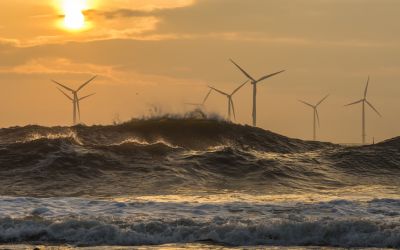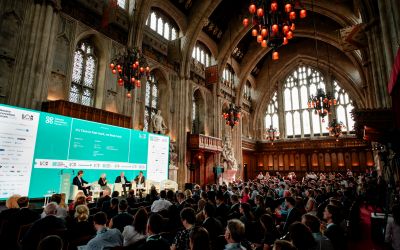EN+ Group announces ambition to become net zero by 2050
EN+ Group has announced its ambition to become net zero by 2050 and to reduce greenhouse gas emissions by at least 35% by 2030.

EN+ Group has announced its ambition to become net zero by 2050.
EN+ Group, one of the largest aluminium producers in the world, has announced its plans to become net zero by 2050 and to reduce greenhouse gas emissions by at least 35% by 2030.
The targets cover absolute emissions across all operations, including aluminium production plus heat and electricity production.
In 2019, the Group's metal business, UC Rusal, produced 6% of the world's aluminium and its power segment, EuroSibEnergo, generated over 64 TWh of clean hydropower. The Group believes that the targets announced today represent the most ambitious carbon reduction targets yet seen in the global aluminium industry, setting a new standard in one of the most energy intensive industries in the global economy.
The Board has approved targets of at least a 35% reduction in GHG emissions by 2030 and to be net zero by 2050. Identified by the United Nations as one of the seven "hard-to-abate" sectors, the aluminium industry alone is responsible for more than 2% of global carbon emissions. En+ Group say this will require improvement and transformational innovation across the entire production chain.
Over the coming months, before publishing its final Net Zero strategy, the Group will engage in extensive consultations with all relevant external stakeholders, including suppliers, key customers, investors, local communities and relevant international experts, with an aim of publishing a Group report on the pathway to Net Zero by 2050 and the reduction of GHG emissions by at least 35% by 2030 in September 2021, ahead of UN COP26 in Glasgow.
It is expected that the metal segment's targets will be verified and approved by the Science Based Targets initiative (SBTi) by August 2021. To achieve this, En+ Group will work with UN Global Compact, a key partner of the SBTi.
Lord Barker of Battle, Executive Chairman of En+, said: "Once again the En+ Group is showing ambitious sector leadership on the biggest environmental issue of our time. These climate change targets and the roll out of a detailed route map to meet them, are yet more tangible evidence of our commitment to lead the global aluminium industry into the low-carbon economy. We will achieve this transformation with relentless scientific innovation and a change programme driven right across the whole group. This will require continued investment in major scientific advances such as our pioneering inert anode technology and critical industrial process improvements, as well as implementation of net zero initiatives for the hardest 'last mile' emissions."
"The Group can draw on its long record of not just R&D but also execution excellence and experience in process optimisation: these are in the Group DNA. Our metals business has already massively over achieved in meeting existing carbon reduction targets. The target of emitting less than 2.7 tonnes of CO2 equivalent per tonne of aluminium (scope 1 and scope 2 from electrolysis) by 2025, was met in 2017! That is why, although I don't underestimate the huge challenges ahead in meeting these targets, we face them with growing confidence."
In September 2019, EN+ and a cohort of international businesses were commended at the UN Climate Summit for commitments to climate targets across their operations and value chains, with such targets being aligned with a target of limiting global temperature rises to 1.5 degrees above pre-industrial levels, entailing the achievement of net zero emissions by 2050.
Joan MacNaughton CB, independent non-executive director and chair of the En+ Health, Safety & Environment (HSE) Committee said, "Two years ago the reconstituted En+ Group board set a new level of ambition for environmental performance. Today we take a huge step towards fulfilling that promise. We are determined to be at the leading edge of what this sector, being one of the hardest to abate, can do to transition to a low carbon business model."
Find out more here.






